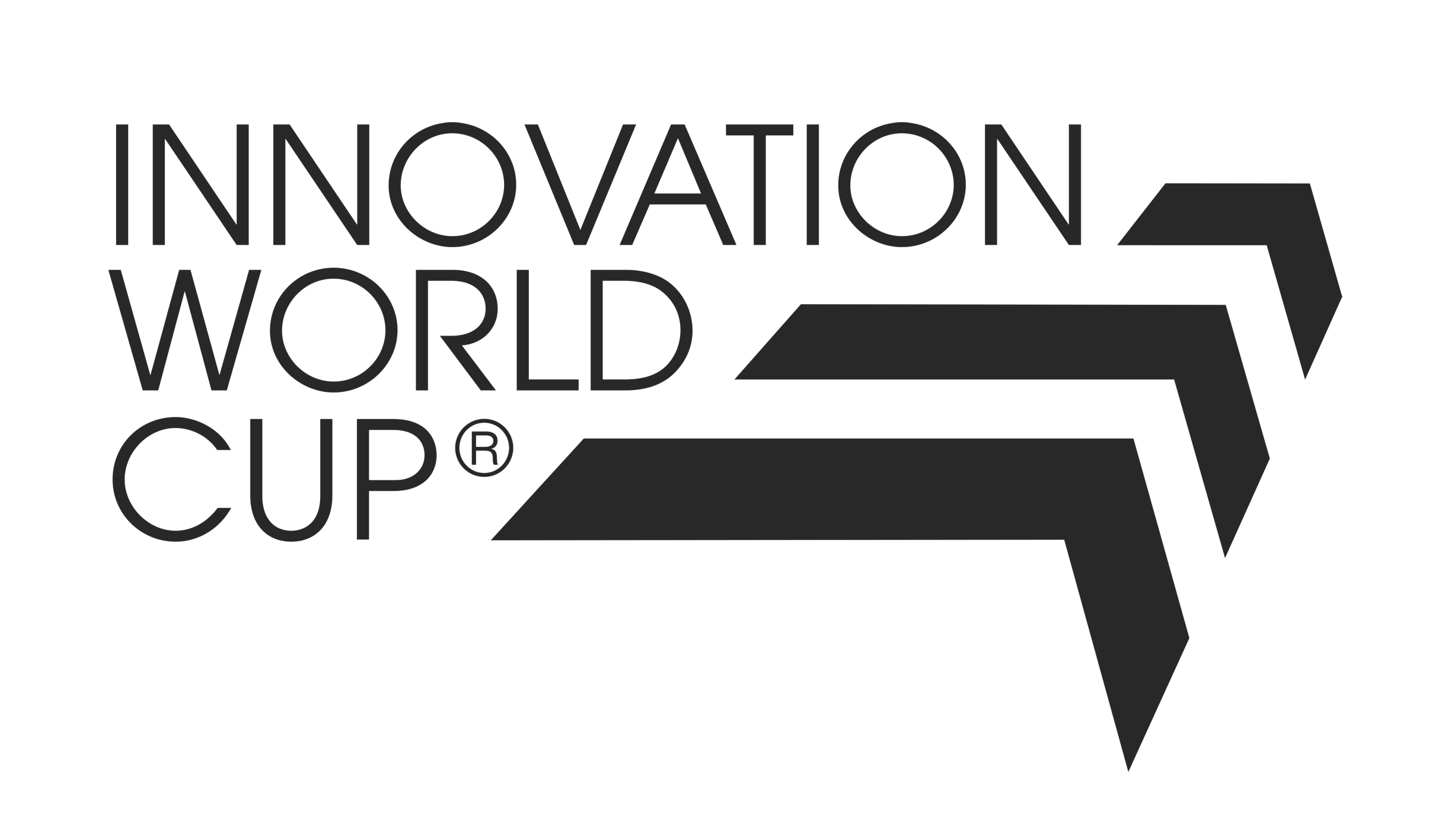Meet SynPhNe – Proud winner of the 8th MEDICA App COMPETITION powered by Roche Diagnostics and Bayer G4A! SynPhNe introduces the world’s first wearable device that trains the brain and muscle in ONE system, accelerating rehabilitation after stroke or injury, or due to aging. The Innovation World Cup® Series interview Dr. Subhasis Banerji, Founder of SynPhNe, and learn about his breakthrough solution from draft to successful product launch.
1. HOW DID THE STORY BEGIN?
I suffered a near fatal car accident in 1998 while in India, which left me with brain and physical injuries, from which I took nearly 5 years to make a complete recovery. After doctors gave up on me within the first one year or so, I started my own recovery journey using relaxation and movement techniques from my previous martial arts and yoga training. In 2007, I came to Singapore to do research on building a technology to help people with neurological and physical disability recover. Here I met my co-founder Dr. John Heng and completed my PhD on the SynPhNe system.
The name SynPhNe is an abbreviation for Synergistic Physio Neuro platform. It is the world’s first wearable, connected technology which trains brain and muscle as ONE system, using relaxation and attention as a fundamental, measurable paradigm for training all physical and cognitive activity.

2. WHAT ARE THE KEY MILESTONES YOU HAVE REACHED SO FAR?
- After 10 years of research, we have a regulatory approved solution that has been commercially adopted in hospitals in Asia, and for trials in major healthcare institutions in the USA. We have also launched our own SynPhNe CARE Training centres in Singapore and India to help patients directly.
- We have helped patients 10-15 years after stroke, to make a recovery and return to independent living.
- With our solution for home-based, minimally supervised, anytime-anywhere therapy, we have brought down the direct and indirect costs of therapy sessions in India by more than 50%, while maintaining quality of outcomes by tracking brain-muscle recovery data captured by our wearable device. Our target in next 2 years is to reduce the cost of daily rehab for physical and cognitive disability by 80% in developing and developed economies.
- We were voted the best medical app at the 8th MEDICA App COMPETITION in 2019, and were also listed in the Top 12 Singapore Start-Ups to Watch in 2020.
3. WHAT HAVE YOU LEARNED THROUGHOUT THE JOURNEY?
The 3 biggest lessons are:
- In our domain of disability, the requirements of hospitals and those of patients differ very widely. One must decide early on how one wishes to address these diverse requirements. And design the products accordingly.
- Despite our apprehension about the Medical community accepting new, disruptive technologies, particularly in the Rehab space, we have been pleasantly surprised at the positive responses received by key opinion leaders across Asia, Europe and USA. The use of digital technology in Rehabilitation is now gaining greater acceptance compared to before.
- Patients and caregivers are increasingly making their own-, educated choices about which technologies suit them best, including paying out of pocket for services and products they feel add value. Start-ups should facilitate these choices by disseminating validated information.
The one thing we would change if we had to start all over again would be to educate ourselves how to raise money at least 2 years earlier, since tech cycles are short, and very few VCs fund disruptive innovations which upset established business models in a particular sector. One thing we would never change is to stay closely and directly engaged with patients in our design thinking journey, as customer experience is a key element that impacts the success of a new digital solution.
4. WHAT ARE THE NEXT BIG STEPS IN YOUR PIPELINE?
Chronic disease and disability overtook the number of people affected with infectious disease more than 5 years ago. Mainstream healthcare has not prepared itself for this new scenario with too few therapists trying to treat too many patients with methods that cannot be adequately scaled. The other big change is chronic disease and disability are no longer old age problems, they are affecting much younger people who want to get their lives back! In all these areas, SynPhNe is ready to address the problem from a clinical (outcomes) as well as socio-economic (access, affordability, easy to use) perspective. The market will continue to grow exponentially, demanding a digital solution.
The next big step for us is to extend our stroke application to childhood learning disability, where we have already demonstrated and published amazing outcomes, using the same platform we are using for stroke. We expect to roll this application out over the next two years along with early dementia and early Parkinsons. Our 10 year vision is to get people to adopt SynPhNe as a lifestyle health solution at home for the whole family, be it kids in school, adults at work, or elderly in retirement.
5. HOW WAS YOUR EXPERIENCE IN THE 8th MEDICA App COMPETITION?
The MEDICA App COMPETITION demonstrated to us different approaches that healthcare start-ups are using from wearables to mobile apps to AI to traditional methods. It helped us re-validate and communicate globally the uniqueness of our approach and our technology, all at one venue.
The competition we won gave us a lot of confidence that we were moving in the right direction with our very innovative solution for stroke recovery. The press coverage and online presence was really great. In Europe, we are now part of the 5-HT.com digital hub ecosystem, and have a lot of offers for distributorship of our products which we are evaluating.
Since the win, we have seen a good scale up of our business in India. We also launched our company in the USA in March 2020. During the COVID-19 lockdown, we have used our digital solution to make sure our patients remain on target in their therapy.
We sincerely thank the MEDICA App COMPETITION team for a wonderful experience last year. Wishing them all the best in 2020!
6. ANY ADVICES FOR UP-COMING STARTUPS?
For upcoming start-ups, I would recommend:
- Clearly articulate the problem that you are solving, and from that identify the market segment you wish to serve the most. You should start your product journey only after you have done so.
- Most medtech start-ups create a product idea based on what’s hot and go about looking for market fits later. Research grants also follow pretty much the same trajectory. It results in a lot of money and effort going down the drain.
- I would go so far as to say if you are undertaking a PhD study, go to market first to understand what the real problems are, before you get into literature review.
- Never burn yourself out health-wise, family-wise or financially. Always proceed by balancing ambition, ability, personal happiness and financial goals. Choose investors who understand this and the reason you founded your start-up.
Additionally, the three key evaluation criteria to check are:
- Whether the problem you are trying to solve is significant enough? Is it clearly articulated?
- Does your solution differentiate itself clearly from others out there? Is it comprehensive?
- How rigorously have you validated it in the early stages and how easily is it scalable.
Future participants should present the above clearly in their presentations and pitches.

Explore further:
Following SynPhNe, healthcare innovators worldwide submit your solutions, FREE OF CHARGE, to the 9th MEDICA START-UP COMPETITION in 4 categories: Health apps | Diagnostics | AI in healthcare | Robotics.
Selected finalists will benefit from:
- International awareness at the 7th MEDICA CONNECTED HEALTHCARE FORUM, the hotspot for mobile- and connected health at MEDICA, the largest medical trade-fair in the world, on 16-19 November, 2020, Düsseldorf.
- Free marketing packages and extensive media coverage at a global level
- Experts’ advices to boost your business further
- Cash prizes up to 3.500 EURO
- Placement in the Hall of Fame (if selected as the winners)
- And many more!







